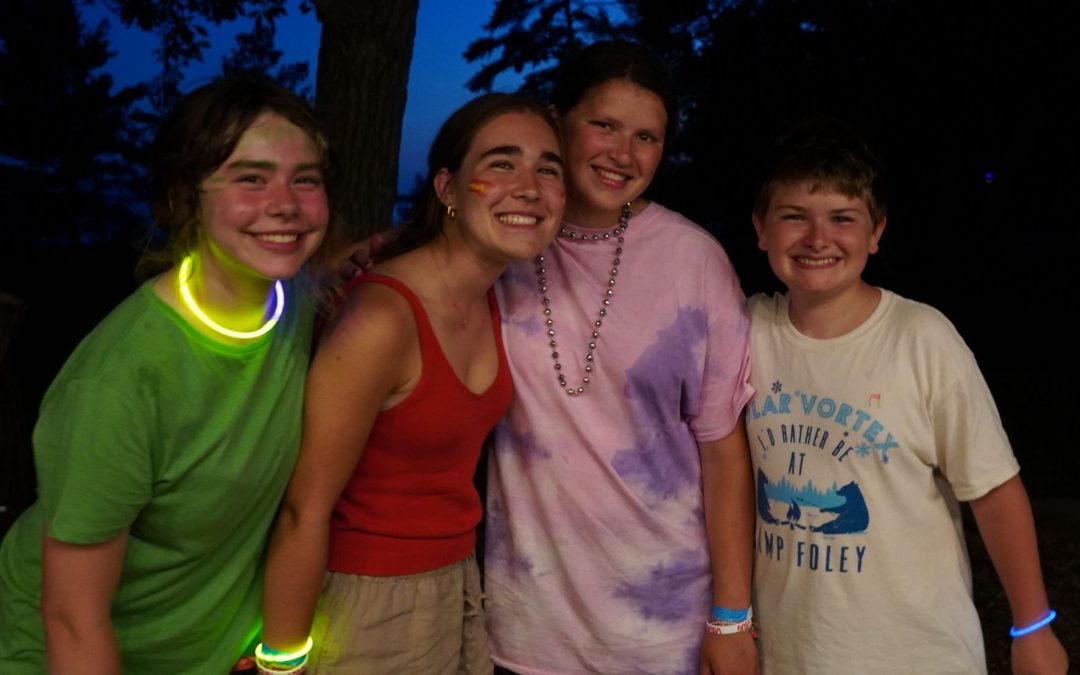Are you wondering, “When is the best time to go to summer camp beginning or end of summer?” Is it the start of summer, when the warmth of June is just beginning to unveil its charm? Or is it better to wait until the tail end of the season, when August’s heat wanes and the anticipation of school is just around the corner? We’ve got you covered! This comprehensive guide will walk you through the pros and cons of starting summer camp at different times.
Key Takeaways
- Choosing between early or late summer camp depends on your child’s preferences, potential scheduling conflicts, and family vacations.
- Late summer camps can help transition kids into the school year with structured activities, while early summer camps capitalize on the excitement of a fresh start.
- Regardless of when you send your child to camp, proper preparation is essential for a positive experience, including packing for the weather and adjusting to camp routines.
Evaluating the Start of Summer Camp
Starting summer camp at the beginning of the season has its unique charm. As the school year ends and the temperatures rise, the smell of adventure fills the air. Children are brimming with excitement, ready to dive headfirst into a world of new experiences. However, this timing harbors both challenges and rewards.
Embracing Fresh Beginnings
Early summer is a time of renewal and fresh starts, just like the early fall when the fall camping season starts. As the school doors close, they open up to a world of opportunities for kids to grow and explore during the daylight hours. The beautiful scenery of the campgrounds, cooler weather, and cold temperatures create an environment ripe for personal growth during the fall season, making summer camping a perfect precursor to these experiences.
However, the start of summer camp also marks the beginning of a whole new routine, which leads us to our next topic.
Scheduling Conflicts
Kicking off summer camp immediately after the school year concludes might feel like assembling a jigsaw puzzle. The overlap of camp dates with family vacations, sports events, and other summer activities can create a bit of a logistical headache. But with some planning, communication, and a dash of flexibility, these conflicts can be managed effectively.
Advantages of Late Summer Camp Attendance
As the sweet scent of summer lingers in the air and the new school year looms on the horizon, many families consider late summer for their camp experience. This period of the season boasts unique advantages, like creating enduring summer memories and facilitating a seamless shift into the school year. We’ll further explore these benefits.
Lasting Summer Memories
As summer winds down, the experiences at camp become even more cherished. The smell of campfires, the sound of laughter echoing across the campground, and the friendships formed during this time are memories that last long after the summer has faded. The end of summer camp truly marks the end of an unforgettable camping trip through the season, with each day a unique adventure.
Preparing for School
Besides the fun and camaraderie, late summer camp also serves as a stepping stone into the new school year. The structured environment of camp, coupled with continued social interaction, aids in smoothing the transition from the freedom of summer to the regimen of the classroom.
The camp experience helps kids acclimatize to the routine and structure of a typical school day, preparing them for academic success.
Comparing Camp Life in Early vs. Late Summer
While each part of summer has its unique charm, the camp life experience can vary considerably between early and late summer. Factors such as weather conditions and camper dynamics often significantly shape the overall summer camp experience.
Weather Conditions
Weather conditions can significantly impact the camping season experience, including winter camping. Early summer often comes with milder temperatures and less chance of extreme weather events, while late summer may bring hotter temperatures and an increased risk of heat-related concerns. No matter the season, preparing for the weather conditions is paramount to guarantee a comfortable and safe camping experience.
Camper Dynamics
The social dynamics of a summer camp also evolve throughout the summer. At the start of the camp, children may be more reserved and cautious. However, as they spend more time together, bonds strengthen, friendships develop, and the camp community becomes closer and more cohesive.
By the end of the summer, the tent camping camp transforms into a tight-knit community, enriched by shared experiences and memories.
Timing Your Summer Camp Experience
Choosing the perfect timing for your child’s summer camp experience is a balancing act that involves considering individual needs, school schedules, and family plans. The key is to find a time that will not only suit your child but also blend seamlessly with your family’s schedule.
Individual Child Considerations
Choosing the right time for summer camp should ultimately be guided by your child’s unique needs and preferences. Some children may be eager to dive right into camp life as soon as the school year ends, while others may benefit from a few weeks of downtime before venturing into the camp experience. Engaging in open dialogues with your child to understand their comfort level and readiness for camp is of utmost importance.
Family Schedule and Vacation Planning
Family schedules and vacation plans often play a significant role in determining the timing of summer camp. Many families find it more convenient to align the summer camp schedule with their vacation plans, ensuring a smooth transition for the child.
Proactive planning and family discussions about your options can help circumvent last-minute inconveniences and guarantee a memorable summer camp experience.
Maximizing Fun and Learning at Summer Camp
Summer camps are a unique blend of fun, learning, and personal growth. Ensuring your child gets the most out of their summer camp experience involves striking a balance between outdoor activities, educational content, and social interaction. In most summer camps, this balance is carefully maintained to provide an unforgettable experience for the children.
Balancing Outdoor Activities and Educational Content
A well-rounded camp experience is about more than just fun and games. It’s about finding a balance between outdoor adventures and educational content. By merging educational experiences with outdoor activities, summer camps offer children a special chance to learn as they enjoy.
This dynamic approach to learning can make the educational content more engaging and memorable.
Making New Friends Throughout Summer
Summer camps provide an excellent opportunity for children to:
- Make new friends
- Broaden their social horizons
- Boost their self-confidence
- Enhance their social skills
- Create lasting memories
Building friendships at camp can have a positive impact on a child’s development and overall well-being.
Whether your child attends camp early or late in the summer, there are always opportunities to make new friends and strengthen existing friendships.
The Most Popular Time to Go Camping
We’ve discussed the pros and cons of early and late summer camps, but when do most families send their kids to camp? There are peak periods during the summer when camp enrollments surge due to various factors.
Peak Summer Camp Enrollment Periods
Mid-summer, specifically July, is often the busiest time for summer camps during the summer months. This is when most families plan their vacations, and kids have a longer break from school. The perfect weather conditions and the plethora of activities available during this time make it an attractive period for families to choose for their children’s summer camp experience.
Factors Influencing Popularity
Several factors influence the popularity of a particular period for summer camp. These include the school calendar, the weather, and the availability of unique camp programs and activities. Understanding these influencers can help you make an informed decision on the best time to send your child to camp.
Preparing for Different Seasons of Camp
Regardless of when you send your child to camp, preparation is key for a smooth transition and a positive camp experience. This includes packing appropriately for the weather and helping your child adjust to the camp routine.
Packing for Hot Weather vs. Cooler Temperatures
Suitably packing for summer camp necessitates thoroughly comprehending the weather conditions during the selected period. Early summer may feature milder temperatures, while late summer can be quite hot. Pack lightweight, breathable clothes for hot weather, and don’t forget to include a summer-weight sleeping bag or blanket.
Adjusting to the Camp Routine
For many kids, the shift from home to camp can be a significant leap. Helping them adjust to the camp routine before they depart can ease the transition. Discussing what to expect, encouraging independence, and helping them understand the camp’s schedule can help prepare them for a successful camp experience.
Summary
Choosing the best time for summer camp is a personal decision that depends on various factors such as your child’s preferences, family schedule, and the specific camp’s offerings. Both early and late summer camps have their unique charms and challenges. Your child’s summer camp experience, whether at the beginning or end of summer, can provide them with unforgettable memories, personal growth, and lifelong friendships.
Frequently Asked Questions
What month is the best to camp?
Late spring, summer, and early fall are the best months for camping due to milder weather and longer daylight hours. Some people also enjoy winter camping for a different experience.
What is the best season to go camping?
The best season to go camping is usually late spring, summer, or early fall when the weather is milder and there are longer daylight hours. However, some people also enjoy winter camping for a unique experience.
What are some advantages of early summer camp?
Early summer camp offers a fresh start, personal development, and the chance to make new friends as the summer begins. Enjoy the advantages!
How do weather conditions vary between early and late summer?
Early summer typically has milder temperatures, while late summer tends to bring hotter temperatures and an increased risk of heat-related concerns. Be prepared for the shift in weather as the summer progresses.
How can I prepare my child for summer camp?
To prepare your child for summer camp, pack appropriately for the weather and help them adjust to the camp routine. Discuss what to expect, encourage independence, and ensure they understand the camp’s schedule for a successful experience.


